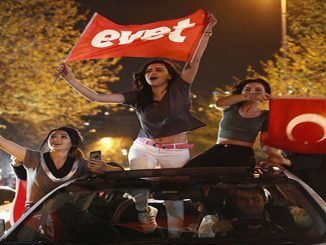
For the first time in six months, Egyptians lived for a few days outside of a state of emergency this month. And the country’s Supreme Constitutional Court (SCC) ruled that ordinary courts — not military ones — have jurisdiction over cases involving alleged law violations in protests, The Washington Post has said in a recent report.
But what may have seemed to be victories for the people were actually triumphs for the security state. The steps were taken in a way that mocked the 2011 Arab uprisings’ demands and revealed how deeply authoritarian measures have been planted in the Egyptian legal order.
A return to an ongoing state of emergency
In writing Egypt’s post-uprising constitutions, would-be reformers pressed hard to limit emergency rule, mindful of how it had been used to govern Egypt with few interruptions since it was declared at the beginning of World War II. The current governing document, promulgated in 2014 during a time that security-minded state institutions were reestablishing their hold on the country, preserves only a few of the reformers’ ideas.
On emergency rule, the 2014 constitution makes an important limitation on rulers: Rather than being allowed to declare emergency rule for years on end with periodic renewals, the constitution says that declarations must not only be ratified by parliament but also that they can last no more than three months. They may be renewed, but only once, and such renewals require a supermajority of parliament.
Egypt’s seemingly permanent state of emergency under the old regime finally expired in 2012. Since then, some Egyptian leaders have declared states of emergency, but often for a limited location and within the time limitations imposed by the constitution. In April, a state of emergency covering the entire country was declared; it was duly approved by parliament. In July, it was renewed, with the renewal also receiving the approval of the deputies. Then, in compliance with the constitution, it was allowed to lapse Oct. 10. Stunningly — or perhaps not so surprisingly — a new state of emergency, governing the entire country yet again, was declared immediately, but set to go into effect Oct. 13.
This workaround was, of course, a clear violation of the spirit of the constitution. Arguably, it is a violation of the letter as well, since the renewed declaration was clearly prepared before the old one had expired. The strong evidence of that is both the haste with which the new one was issued and a step taken shortly before the old one expired assigning certain powers to the State Security Courts Emergency Section. Such bodies operate only to try crimes committed under a state of emergency. There would have been little reason to reinvigorate these courts unless a new state of emergency was in the works.
The protest law and military courts
This month, the SCC ruled that in cases of regular alleged violations to the protest law, ordinary courts — rather than military courts — are the judicial bodies that have jurisdiction. Opponents of military trials for civilians had tried hard to get some guarantees to safeguard civilians from these trials written into the 2014 constitution, but their pleas were decisively rejected.
Did the SCC manage to find a way to roll back military courts with this most recent verdict? Not really.
The case was not a constitutional one — it was a conflict over jurisdiction between two courts in which a civilian and a military court were each trying to hand the case to the other. The military courts had not actually expected, asked for or wanted jurisdiction.
Further, irrespective of this verdict, at least two pieces of legislation guarantee that the military courts will continue to enjoy expansive powers regardless of how the ordinary judicial process regards them. The 2014 constitution generally safeguards the existence of the military judicial process and allows a number of expansive scenarios in which a civilian can be tried through this process.
Additionally, a 2014 presidential decree designating public facilities and properties to be protected by the Egyptian army also stipulates that any crimes committed by civilians on such facilities or properties be tried by the military court — significantly expanding the reasons that any everyday citizen can be brought before this extraordinary judicial process.
While the SCC was taking the step of stripping military courts of cases they never wanted, the state of emergency was being used to expand the jurisdiction of the State Security Courts Emergency Section. An Oct. 8 decree reviving them allows the general prosecution to steer their way a slew of crimes, including, but not limited to, felonies and misdemeanors “internally prejudicial to the government,” instigating to overthrow rule, economic crimes under the law on supply commodities and the law on compulsory pricing and profit regulation, insulting the president, violations of the protest law and crimes under the new counterterrorism law.
Treating ‘emergency’ designations as the new normal
By significantly expanding the powers of a judicial tool meant only to serve “emergency” purposes, Egyptian authorities make the recent SCC verdict nearly irrelevant and limit the influence of the ordinary court system, instead focusing their efforts on creating a parallel judicial process that is guaranteed to dole out verdicts in the security state’s favor.
With the state of emergency allowing authorities a number of other powers that complement these developments, including the interception of personal communications, the censorship of public speech, and the sidestepping of due process, the state of emergency in Egypt is the new normal — or rather, the old normal brought not merely back to life, but up to date.



